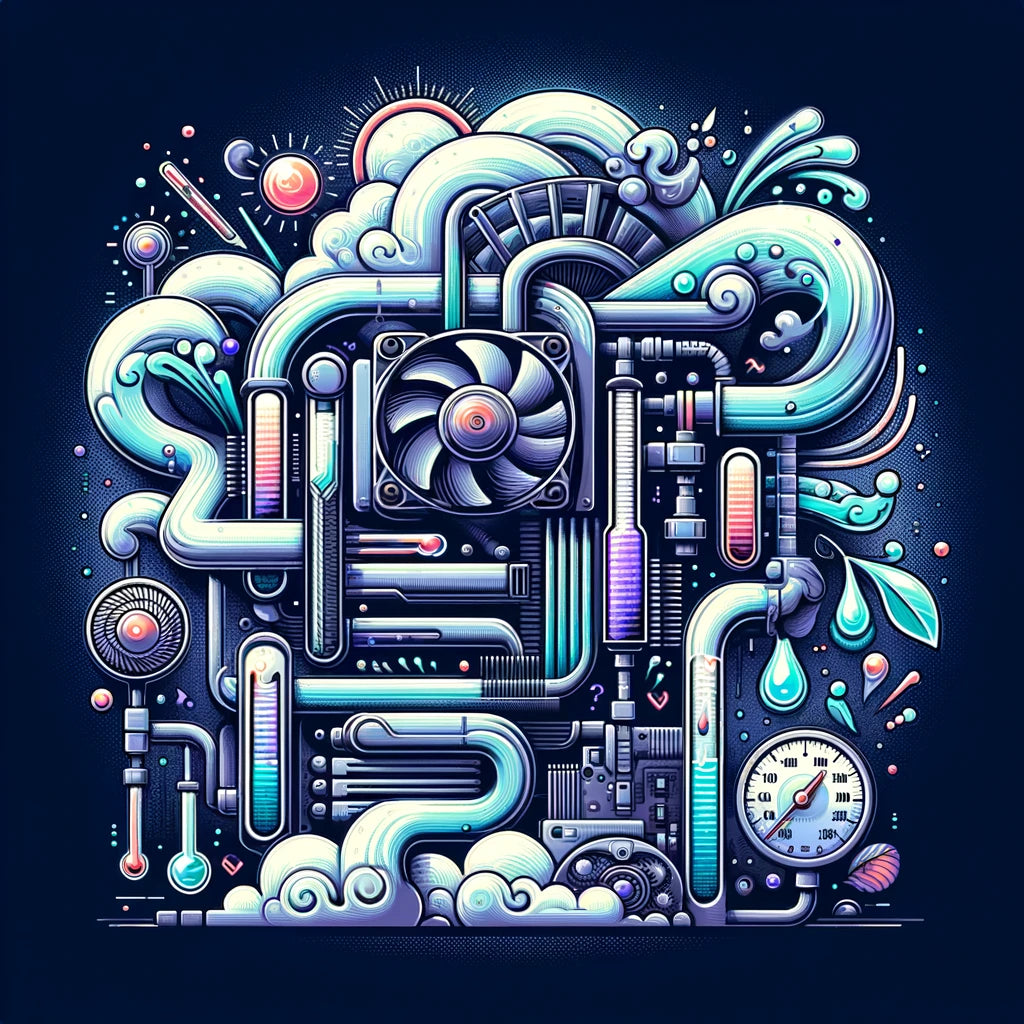| Key Takeaways |
|---|
| Cooling systems are essential for keeping equipment and environments at safe, operational temperatures. |
| There are two main types of cooling systems: air-cooled and water-cooled. |
| Air-cooled systems use fans to disperse heat, while water-cooled systems use water to absorb and remove heat. |
| Regular maintenance is crucial to ensure the efficient operation of cooling systems. |
| Choosing the right cooling system depends on specific needs and conditions. |
Introduction
Cooling systems are a fundamental feature in many aspects of technology and everyday life, from keeping our computers running smoothly to maintaining the proper climate in buildings and vehicles. They're designed to remove excess heat, thereby preventing equipment from overheating and ensuring it operates safely and efficiently. In this article, we will break down the basics of cooling systems, how they work, and the importance of their maintenance.
Types of Cooling Systems
At their core, cooling systems can be divided into two main categories: air-cooled and water-cooled. Each has its own applications, advantages, and restrictions.
Air-cooled Systems
Air-cooled systems work by pushing hot air away from the equipment through fans or blowers. The heat is then dispersed into the surrounding air. This type of cooling is often seen in computers, where fans maintain a safe operating temperature for the CPU and other components. Air-cooled systems are usually less costly and simpler to maintain than water-cooled systems, making them a popular choice for many applications. However, they may not be as efficient in extremely hot environments or in applications where space is limited.
Water-cooled Systems
Water-cooled systems utilize water or another liquid to absorb and carry away heat. This method is typically used in settings where air cooling is insufficient, such as in large industrial facilities or high-performance computing. Water has a higher heat capacity than air, allowing it to remove heat more efficiently. Though water-cooled systems can offer superior cooling, they are more complex and can be more expensive to install and maintain.
Maintenance of Cooling Systems
To ensure cooling systems continue to operate effectively, regular maintenance is crucial. This can include cleaning fans and filters in air-cooled systems to prevent dust buildup, which can impede airflow and efficiency. For water-cooled systems, it is important to check for leaks and ensure the cooling liquid is clean and at the proper level. Regular checks will help prolong the system's life, prevent downtime, and maintain performance.
Choosing the Right Cooling System
Selecting the right cooling system depends on a variety of factors, including the specific needs of the equipment or environment, space considerations, and budget. For environments with limited space or where noise is a concern, water-cooled systems may be the preferred choice despite their higher setup and maintenance costs. On the other hand, for applications where simplicity and lower costs are priorities, air-cooled systems may be more suitable. Understanding the demands of your specific application will guide you in making the best choice for your needs.
Conclusion
Keeping equipment and environments cool is crucial for safety and efficiency. Whether through air or water, cooling systems play an essential role in a wide range of applications. By understanding the basics of how these systems work and the importance of regular maintenance, you can ensure they continue to operate at their best. Remember to consider your specific needs and conditions when choosing the right type of cooling system. Doing so will help you maintain optimal temperatures whatever your application, keeping your equipment safe and performing well.
Shop All Products
